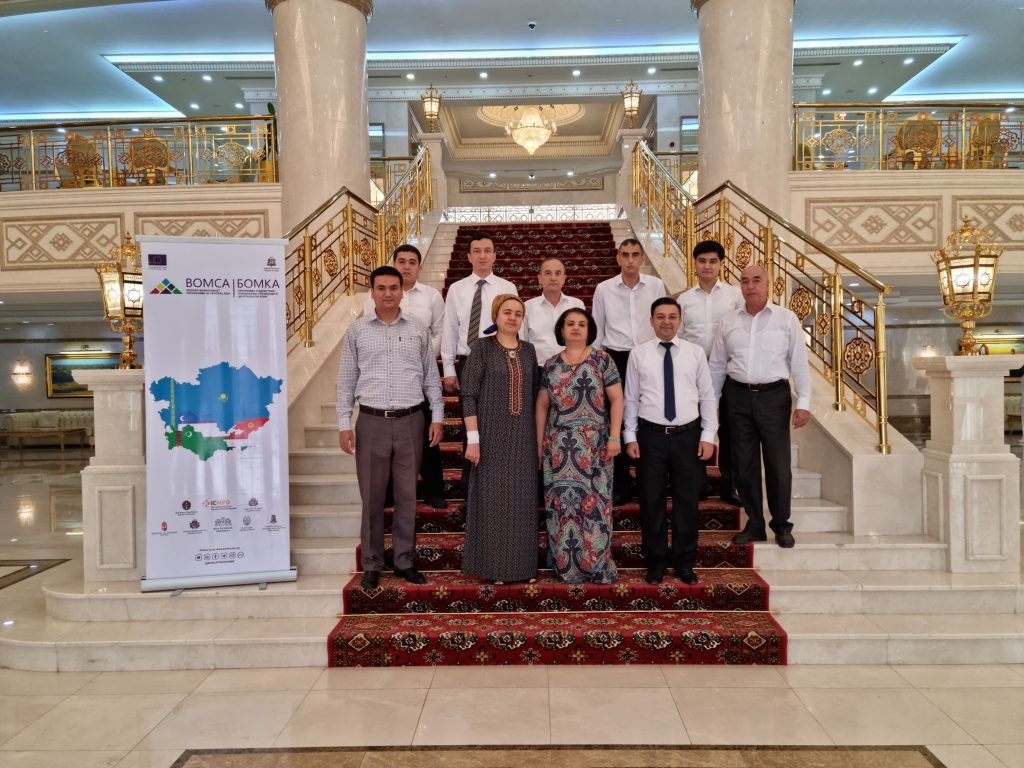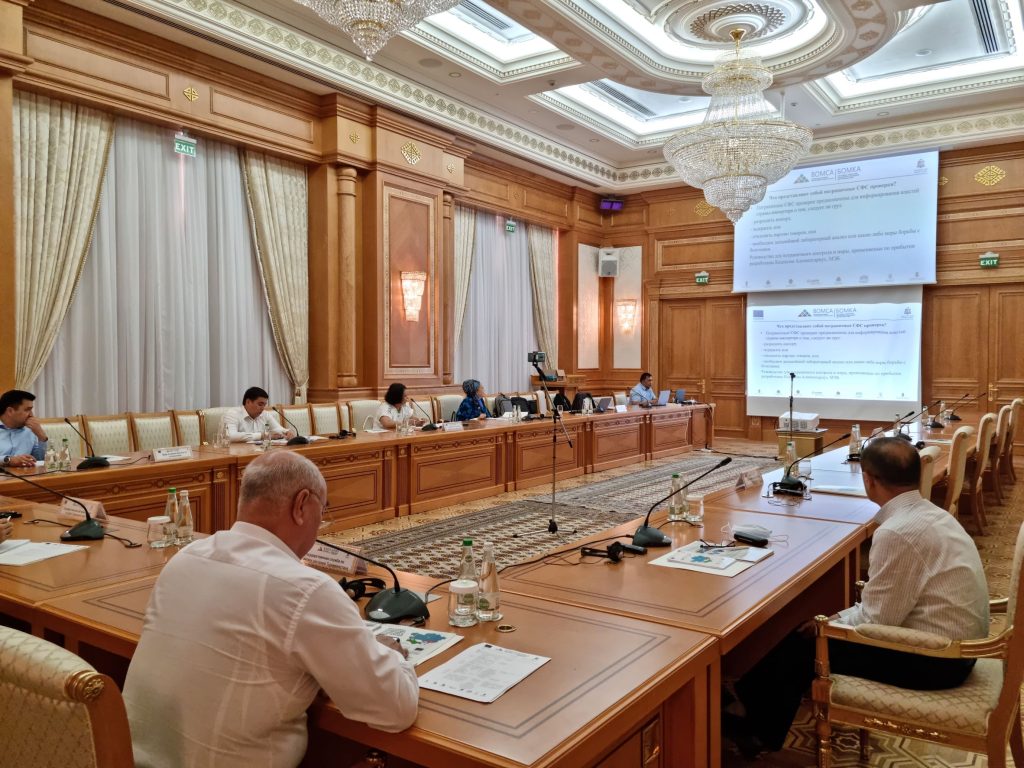From 6 to 8 June, the Border Management Programme in Central Asia held a national workshop in hybrid format in Ashgabat on trade facilitation for veterinary and phytosanitary services of Turkmenistan. The workshop assisted national authorities in assessing their trade facilitation measures and trained authorities in the areas covered by the WTO Trade Facilitation Agreement and on sanitary and phytosanitary measures. This is the fifth workshop of its kind conducted by the BOMCA Programme in the Central Asian region, following similar activities implemented this year in Kazakhstan, Kyrgyzstan, Tajikistan and Uzbekistan.
The workshop was conducted by experts from the Food and Veterinary Service of Latvia, who supported developing recommendations and draft action plans on trade facilitation measures applied by the sanitary and phytosanitary authorities. The recommended actions build upon the results of the legal and trade analysis of the existing legal framework and practices for compliance with the provisions of the WTO Trade Facilitation Agreement.
About BOMCA
The Border Management Programme in Central Asia (BOMCA), funded by the European Union (EU), aims to enhance security, stability and sustainable growth in the region, while supporting cross-border cooperation and improving living conditions for people in the border areas of Central Asia. Since its implementation in 2003, BOMCA has played a leading role in strengthening cooperation between border control authorities through the application of the concept of integrated border management, as well as in bringing border control in line with international and EU standards.
BOMCA’s tenth phase, launched in April 2021, covers four areas: institutional development of border management agencies, improvement of detection capacities, trade facilitation, and improvement of cross-border cooperation. With a budget of EUR 21.65 million and an implementation period of 4.5 years, BOMCA 10 is the largest regional initiative in the field. It is implemented by a consortium of border management institutions of selected EU member states and the International Centre for Migration Policy Development led by the State Border Guard for the Republic of Latvia. ///BOMCA, 8 Jun 2022

